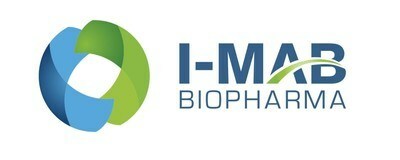I-Mab Presents Updated Phase 1 Givastomig Data at ESMO 2024
Rhea-AI Summary
I-Mab (NASDAQ: IMAB) presented updated Phase 1 data for givastomig, a novel Claudin 18.2 X 4-1BB bispecific antibody immunostimulant, at ESMO 2024. The study showed promising single-agent activity in heavily pre-treated gastric cancer patients with varying Claudin 18.2 expression levels. Key findings include:
- Recommended Phase 2 dose: 8-12 mg/kg
- Well-tolerated up to highest study doses
- Objective response rate (ORR): 16.3% (7/43 patients)
- Disease control rate (DCR): 48.8% (21/43 patients)
- No dose-limiting toxicity up to 15 mg/kg Q2W and 18 mg/kg Q3W
- Linear pharmacokinetics at doses ≥5 mg/kg
A Phase 1b study combining givastomig with standard-of-care treatment in front-line gastric cancer patients is ongoing, with results expected in H2 2025.
Positive
- Promising single-agent activity observed in heavily pre-treated gastric cancer patients
- Objective response rate (ORR) of 16.3% and disease control rate (DCR) of 48.8%
- Well-tolerated safety profile with no dose-limiting toxicity up to highest study doses
- Efficacy observed in patients with both low and high Claudin 18.2 expression levels
- Linear pharmacokinetics at doses ≥5 mg/kg, indicating predictable drug behavior
Negative
- Phase 1 study results, still early-stage data with patient population
- Ongoing Phase 1b study results not yet available, delaying potential market entry
News Market Reaction 1 Alert
On the day this news was published, IMAB gained 2.83%, reflecting a moderate positive market reaction.
Data tracked by StockTitan Argus on the day of publication.
- Expanded Phase 1 monotherapy study of givastomig, a Claudin 18.2 X 4-1BB bispecific antibody immunostimulant, shows promising single-agent activity in heavily pre-treated patients with gastric cancers expressing Claudin 18.2 at low and high levels
- The recommended Phase 2 dose for givastomig was determined to be 8-12 mg/kg; givastomig was well tolerated up to the highest study doses
- A Phase 1b study, evaluating givastomig in combination with standard-of-care treatment (nivolumab + chemotherapy (FOLFOX)) in front-line gastric cancer patients, is ongoing
Givastomig (TJ033721 / ABL111) is a bispecific antibody targeting Claudin 18.2-positive tumor cells that conditionally activates T cells via the 4-1BB pathway in the tumor microenvironment, where Claudin 18.2 is expressed. Givastomig stands out among other Claudin 18.2-targeted therapies based on its nonclinical findings of localized, conditional activation, even in tumors with low levels of CLDN18.2 expression, and has exhibited a favorable safety profile in clinical trial participants to date.
"We believe givastomig has the potential to be a front-line treatment option for patients with gastric cancers. Data presented at ESMO 2024 show that givastomig demonstrated continued monotherapy efficacy signals in heavily pre-treated patients, especially gastric cancers with a range of Claudin 18.2 expression levels and a strong overall safety profile. Together, this profile supports our view that givastomig has the potential to be a differentiated, class-leading therapy," said Dr. Phillip Dennis, MD, PhD, Chief Medical Officer of I-Mab. "The first evaluation of givastomig as a front-line therapy for gastric cancers is underway. The Phase 1b dose expansion study will evaluate givastomig in combination with standard-of-care, nivolumab plus chemotherapy. We continue to be enthusiastic about the program, and we look forward to sharing the results from this study in the second half of 2025."
Poster Title: Updated Safety and Efficacy from the Phase I Study of Givastomig, a Novel Claudin 18.2/4-1BB Bispecific Antibody Immunostimulant, in Claudin 18.2 Positive Advanced Gastroesophageal Carcinoma (GEC), Poster 1017
Data are based on the ongoing Phase 1 study that includes results from the Phase 1a dose escalation segment presented at ESMO 2023 and additional data from the Phase 1b dose expansion segment. The Phase 1b segment will evaluate the safety, efficacy, pharmacokinetics (PK), and pharmacodynamics (PD) of givastomig.
The poster presents data on 43 patients with advanced gastroesophageal carcinoma (GEC) who were enrolled in the dose expansion study. Participants were required to have GEC tumors centrally confirmed to be CLDN18.2-positive (CLDN18.2+), defined as ≥
Key observations include:
Of the 43 patients with CLDN18.2+ GEC who received givastomig monotherapy at doses ranging from 5 to 18 mg/kg, partial responses were observed in seven patients (one at 5 mg/kg, one at 8 mg/kg, four at 12 mg/kg, and one at 18 mg/kg) with an objective response rate (ORR) of
- No dose-limiting toxicity was reported up to 15 mg/kg Q2W and 18 mg/kg Q3W, and a maximum tolerated dose (MTD) was not identified.
- The most common treatment-related adverse events (TRAEs) were mainly grade 1 or 2.
- Givastomig exhibited a linear PK at doses ≥5 mg/kg and showed a dose-dependent increase in soluble 4-1BB levels, reaching a plateau at doses 8 mg/kg to 18 mg/kg.
- CLDN18.2 expression in responders ranged from
11% to100% . Five responders had received prior treatment of PD-(L)1 inhibitors.
A full copy of the poster is available on the I-Mab website under the "Innovation – Publications & Presentations" tab.
About Givastomig
Givastomig (TJ033721 / ABL111) is a bispecific antibody targeting Claudin 18.2-positive tumor cells. It conditionally activates T cells in the tumor microenvironment where Claudin 18.2 is expressed using 4-1BB. Givastomig appears to maintain a strong tumor binding property and anti-tumor activity, attributable to a synergistic effect of proximal interaction with CLDN18.2 and 4-1BB, while avoiding or minimizing liver toxicity and systemic immunotoxicity commonly seen with other emerging 4-1BB product candidates. In March 2022, the
The program is being jointly developed through a global partnership with ABL Bio, in which I-Mab is the lead party and shares worldwide rights, excluding
About I-Mab
I-Mab (NASDAQ: IMAB) is a
Forward Looking Statements
This announcement contains forward-looking statements. These statements are made under the "safe harbor" provisions of the U.S. Private Securities Litigation Reform Act of 1995. These forward-looking statements can be identified by terminology such as "will", "expects", "believes", "designed to", "anticipates", "future", "intends", "plans", "potential", "estimates", "confident", and similar terms or the negative thereof. I-Mab may also make written or oral forward-looking statements in its periodic reports to the U.S. Securities and Exchange Commission (the "SEC"), in its annual report to shareholders, in press releases and other written materials and in oral statements made by its officers, directors or employees to third parties. Statements that are not historical facts, including statements about I-Mab's beliefs and expectations, are forward-looking statements. Forward-looking statements in this press release include statements regarding: the potential benefits of givastomig; timing and progress of studies and trials; and the availability of data and information from ongoing studies and trials. Forward-looking statements involve inherent risks and uncertainties that may cause actual results to differ materially from those contained in these forward-looking statements, including but not limited to the following: I-Mab's ability to demonstrate the safety and efficacy of its drug candidates; the clinical results for its drug candidates, which may or may not support further development or New Drug Application/Biologics License Application (NDA/BLA) approval; the content and timing of decisions made by the relevant regulatory authorities regarding regulatory approval of I-Mab's drug candidates; I-Mab's ability to achieve commercial success for its drug candidates, if approved; I-Mab's ability to obtain and maintain protection of intellectual property for its technology and drugs; I-Mab's reliance on third parties to conduct drug development, manufacturing and other services; and I-Mab's limited operating history and I-Mab's ability to obtain additional funding for operations and to complete the development and commercialization of its drug candidates, as well as those risks more fully discussed in the "Risk Factors" section in I-Mab's most recent annual report on Form 20-F, as well as discussions of potential risks, uncertainties, and other important factors in I-Mab's subsequent filings with the SEC. All forward-looking statements are based on information currently available to I-Mab. I-Mab undertakes no obligation to publicly update or revise any forward-looking statements, whether as a result of new information, future events, or otherwise, except as may be required by law.
I-Mab Contacts
Investors & Media
Tyler Ehler
Senior Director, Investor Relations
IR@imabbio.com
![]() View original content to download multimedia:https://www.prnewswire.com/news-releases/i-mab-presents-updated-phase-1-givastomig-data-at-esmo-2024-302249232.html
View original content to download multimedia:https://www.prnewswire.com/news-releases/i-mab-presents-updated-phase-1-givastomig-data-at-esmo-2024-302249232.html
SOURCE I-Mab Biopharma









